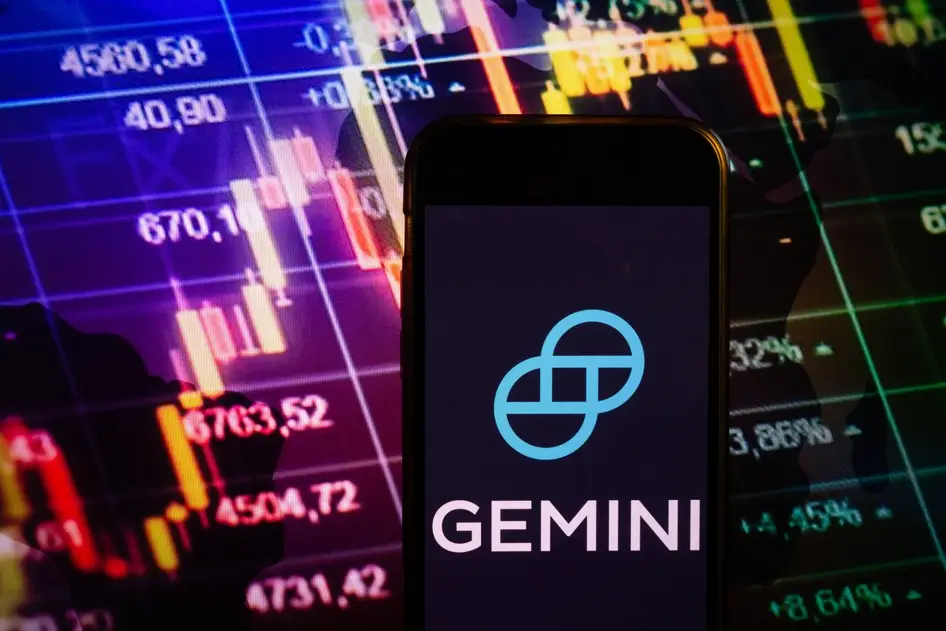Gemini, the cryptocurrency exchange founded by Tyler and Cameron Winklevoss, reported a $159.5 million loss in the third quarter of the year. The latest earnings call marked the company’s first quarter as a publicly traded company.
Despite a 52% quarter-over-quarter revenue surge to $49.8 million, the exchange has faced steep financial challenges this year. In its August IPO filing, the company reported a net loss surpassing $282 million in the first half of the year.
Facing declining trading volumes relative to competitors like Coinbase and Kraken, Gemini is betting on a new frontier: prediction markets. Earlier this month, reports surfaced that the company plans to offer event contracts, a move confirmed by COO Marshall Beard and co-founder Cameron Winklevoss during Tuesday’s investor call.
Gemini’s bet on prediction markets reflects big ambitions
Cameron Winklevoss confirmed that the exchange applied to the Commodity and Futures Trading Commission (CFTC) to build a Designated Contract Market (DCM). This designation would enable Gemini to list contracts based on the outcome of events, ranging from elections to entertainment outcomes.
“We’re very excited about these markets. We think it’s very early days,” Cameron said. “It reminds us a lot of what Bitcoin felt like in 2012 when we first discovered it. And this idea that you can essentially build a market on anything, any kind of event, is fascinating and really a boundless opportunity.”
The company plans to resume work on its application once the US government reopens.
In addition to offering prediction markets, Gemini is also planning to unveil a “super app.” A single platform designed to connect traditional finance and crypto in “one seamless experience.”
The plan mirrors a broader industry shift towards all-in-one financial ecosystems, as crypto-native companies strive to find solutions for the industry’s challenging user experience and drive broader adoption. However, the strategy could also put Gemini in direct competition with Coinbase’s Base App, which was released in beta earlier this year.
Analysts have described Gemini’s latest quarter results as “brutal” for a cryptocurrency exchange.
“Until they either get serious volume or cut burn, the losses are a slashing warning light more than a normal crypto-winter dip,” said Joe Z, the co-founder of DeAgentAI, an AI-powered predictive signal platform.
Eneko Knorr, the CEO and co-founder of Stabolut, told PredictionNews that the “real red flag” behind Gemini’s latest losses is the company’s revenue ceiling.
“They’re stuck in a difficult middle ground where they’re too expensive to beat Kraken and too niche to beat Coinbase. The challenge now is generating enough volume to justify their high compliance costs.”
Textbook business move or signs of desperation for Gemini?
Prediction markets represent a fast-growing niche, and Gemini will not be the first crypto exchange to tap into them.
Prominent cryptocurrency exchange Crypto.com has recently partnered with MyPrize Sweepstakes Casino to launch prediction markets on its social gaming platform, as well as with Hollywood.com to offer entertainment prediction markets. They’ve also partnered with other companies with strong distribution channels, including fantasy sports operator Underdog.
However, experts noted that Gemini’s announcement of a super app and prediction markets launch so close to its steep quarterly losses could suggest the move is “driven as much by necessity as by opportunity.”
“Diversification is healthy, but when it is forced by under-performance, it can look reactive. The key risk is distraction: if Gemini focuses too heavily on new experiments without fixing its core exchange model, it could weaken both fronts,” Cais Manai, the co-founder and head of product at TEN Protocol, warned in a statement to PredictionNews.
Stabolut’s Knorr highlighted Gemini’s move as “textbook.” He explained that when a business’s core market is saturated, companies tend to take risks and pivot into high-growth verticals. Prediction markets have earned that designation in recent months.
However, realistically speaking, DeAgentAI’s Z noted that even if Gemini does tap into prediction markets, they will not be a solution for the $159 million hole.
While the Winklevoss twins spoke with conviction about the company’s long-term potential, investors and industry observers remain cautious.
“Even if the product catches some buzz, the revenue curve will be slow, and the infrastructure and compliance costs will bite early on. These things take time to build liquidity and trust. Look at how long even established derivatives products took to get traction.”

























